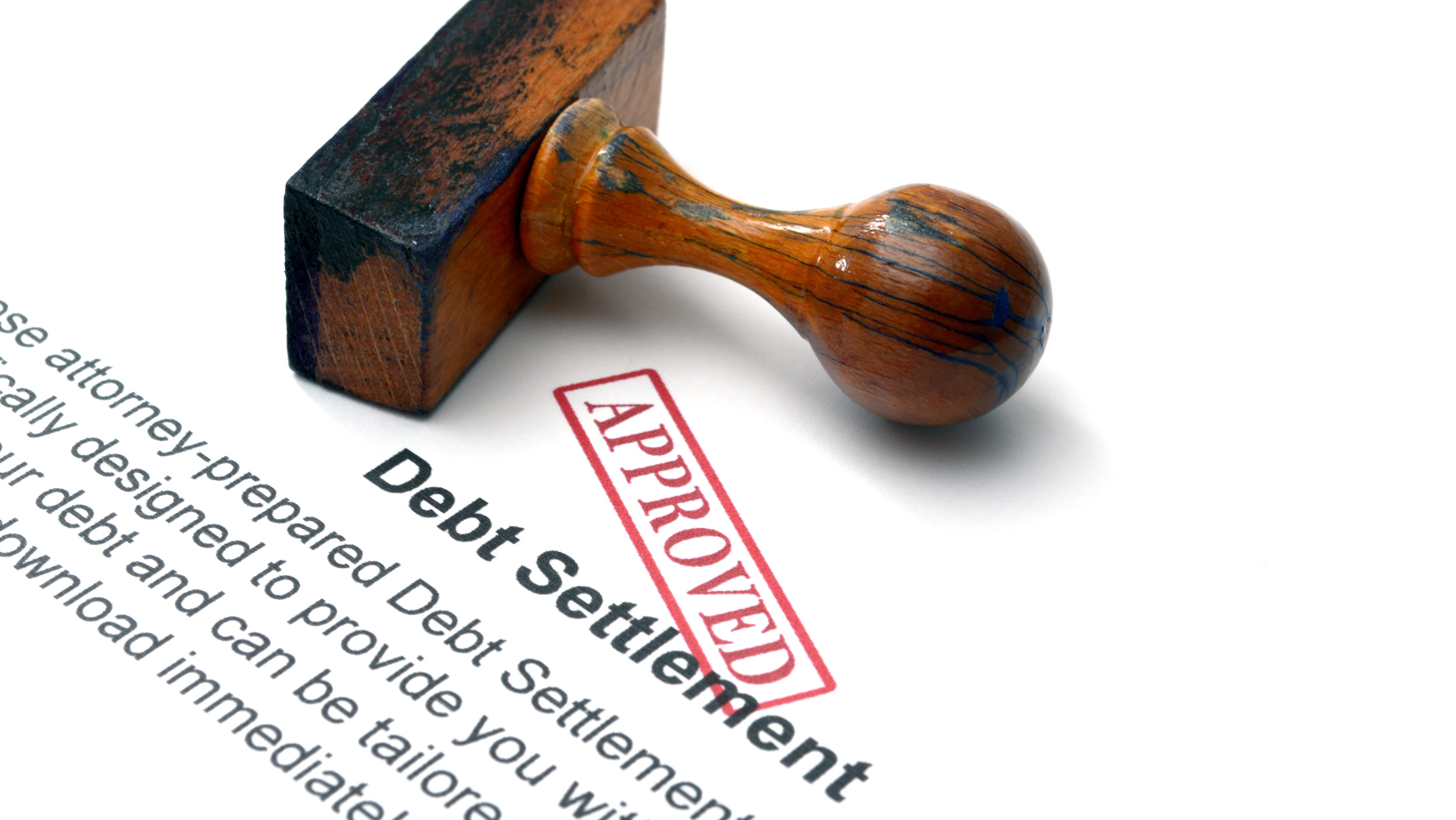Ah, the age-old question on everyone’s lips once they’ve embarked on the legal roller coaster ride of a settlement: “How long before I can finally put this to bed and move on?” Imagine standing in an endless line at your favorite amusement park, waiting for the thrill of that one ride. It’s a similar feeling, isn’t it?
The anticipation, impatience, and uncertainty all add a certain zest to the experience. Yet, regarding settlements, this is not a ride you are on for the thrills. It’s more about reaching the finish line. In law, settlements can be likened to marathons, not sprints. They demand patience, resilience, and a whole lot of time. In this guide, we’ll take you through the factors that can affect the length of your settlement and what you should know before embarking on this journey. Buckle up! It’s going to be a bumpy ride.
Understanding Settlements

Settlements are agreements forged by conflicting parties to resolve their differences without resorting to a court verdict. They resemble a delicate negotiation over a delectable slice of pie, with each party striving to secure a portion that satisfies their hunger for justice. However, the intricacy and duration of settlements can vary, much like the size of the pie and the parties’ appetite.
Multiple factors influence the time required to reach a settlement, including the nature of the dispute, the willingness to find common ground, the expertise and experience of the law firm attorneys involved, and the insurance company court’s caseload. It is a delicate dance where strategy, patience, and legal insight must harmonize. Understanding this dance’s intricate steps can define a swift resolution and a protracted legal battle.
Factors That Affect Settlement Timelines
The length of a settlement can vary greatly due to several factors. These can range from the case’s complexity to the parties’ personalities and attitudes. As legal professionals, it is crucial to understand these factors to manage clients’ expectations and achieve a favorable outcome efficiently. Here are some essential aspects that can impact settlement timelines:
Nature of Dispute
The nature of a dispute is one of the primary factors affecting the timeline for reaching a settlement. Some disputes may involve straightforward legal issues, while others may be more complex and require extensive negotiations to reach an agreement. For instance, a case involving two parties disputing over a personal injury claim in a car accident may have a faster resolution than a medical malpractice case, which requires the examination of medical records and expert opinions.
Additionally, disputes involving emotional or deeply personal matters can prolong settlement discussions as parties may be less willing to compromise. Therefore, understanding the nature of a dispute is crucial in estimating the time required for reaching a settlement.
Willingness to Negotiate

The willingness of parties to negotiate is a critical factor in the settlement process. It takes two to tango, and without both parties actively engaging in negotiations and showing openness to finding a middle ground, reaching a settlement can become a tedious and drawn-out process. In some cases, one party may have no interest in settling and may prolong negotiations by refusing to budge on their demands.
This can lead to a deadlock, requiring the intervention of a mediator to facilitate discussions further. For example, in a divorce case, if one spouse is unwilling to compromise on the division of assets, it can significantly delay reaching a settlement and prolong the legal process.
Attorney Experience and Expertise
Having an experienced and knowledgeable attorney can significantly impact the length of a settlement. A skilled attorney can assess the strengths and weaknesses of their client’s case and negotiate effectively with the opposing party. They can also help manage clients’ expectations, provide valuable medical treatment insights, and guide them through the legal process.
For example, imagine two parties involved in a business dispute. One party has a seasoned personal injury attorney with years of experience in similar cases, while the other party’s personal injury lawyer is relatively new to the field. The experienced attorney may be able to negotiate more effectively and reach a settlement sooner, as they understand the nuances of such disputes and can anticipate potential roadblocks.
Court Caseload
The court’s caseload is a factor that can heavily impact settlement timelines. The court system has limited resources, and with the growing number of cases filed each year, courts often face a backlog. This means there are more cases pending than the court can handle in a timely manner.
As a result, it may take months or even years to get a case on the court’s docket, further delaying fair settlement discussions. Additionally, if a case goes to trial, it may take even longer for a verdict to be reached due to the court’s heavy caseload. For example, in California, one of the busiest states in legal filings, it takes an average of 590 days for a civil case to reach disposition after being filed in court. This delay can significantly impact the length of a settlement, as parties may be more willing to reach a resolution sooner rather than wait for a long and uncertain trial process.
Financial Considerations
Financial considerations can also play a significant role in settlement timelines. Parties involved in a dispute may have different financial resources, impacting their willingness to reach a settlement. For instance, one party may be facing financial struggles and may need a quick resolution to avoid further expenses, while the other party may have more financial stability and can afford to prolong negotiations. This power dynamic can affect the pace of settlement discussions and may require creative solutions, such as payment plans or structured settlements.
Financial considerations can also come into play when determining the settlement amount, as parties may have different interpretations of a fair and reasonable resolution. For example, in a personal injury lawsuit, one party may argue for a higher compensation due to ongoing medical expenses, while the other party may argue that their financial resources are limited and they cannot afford such a settlement. In such cases, attorneys must carefully consider each party’s financial situation to reach a fair and mutually acceptable resolution.
Complications in Gathering Evidence
Complications in gathering evidence can also significantly impact personal injury cases. In many legal cases, the strength of the evidence plays a crucial role in negotiations and reaching a favorable outcome. However, sometimes obtaining necessary evidence can be challenging and time-consuming.
For example, if a case involves complex financial records or requires expert opinions, gathering and reviewing all the evidence may take longer before settlement discussions. Moreover, reaching out to potential witnesses or obtaining official documents from government agencies can also take time and prolong the settlement process. In such cases, parties must be patient and thorough in collecting all necessary evidence to ensure a fair resolution.
Steps to Expedite the Settlement Process

While various factors can impact the length of a settlement, parties can also take steps to expedite the process. These include the following:
Communication and Cooperation
Effective communication and cooperation are crucial in expediting the settlement process. This means being open and honest about one’s needs, concerns, and expectations and actively listening to the other party’s perspective. By fostering collaboration rather than confrontation, parties can find common ground faster and reach a resolution sooner.
For example, in a landlord-tenant dispute over unpaid rent, the landlord and tenant may interpret the lease agreement differently. By communicating their concerns and working together to find a solution, they can avoid lengthy court proceedings and reach a settlement that meets both parties’ needs.
Preparing for Negotiations
Preparation is key in any successful negotiation, and it is no different when it comes to settlement discussions. Parties should take the time to review their case with their attorney thoroughly, identify potential strengths and weaknesses, and determine their desired outcome. This preparation will allow them to enter negotiations with a clear understanding of their priorities and more effectively reach a resolution.
For instance, in a divorce case, if one party wants to keep the family home while the other wants to sell it and split the profits, both parties should thoroughly review their financial situation and consult experts to determine the most feasible option. This preparation will help them present stronger arguments during negotiations and reach a settlement faster.
Exploring Alternative Dispute Resolution
In some cases, traditional negotiation methods may not be effective or suitable for all parties involved. Exploring alternative dispute resolution (ADR) options, such as mediation or arbitration, can help expedite the settlement process.
For example, in a business partnership dispute where emotions are high, and communication has broken down, a neutral third-party mediator can help parties find common ground and reach a resolution without requiring lengthy court proceedings.
Setting Realistic Deadlines
Setting realistic deadlines is another effective way to expedite the settlement process. When parties have a clear timeline, it can provide a sense of urgency and motivate them to work toward a resolution faster. It also helps prevent any unnecessary delays or stalling tactics.
For instance, in a breach of contract case, if one party fails to meet their obligations within the agreed-upon deadline, the other party can set a new deadline and inform them that failure to meet it may result in legal action. This approach can often prompt parties to take settlement discussions more seriously and reach an agreement before facing the consequences.
Considering Creative Solutions
When parties are stuck in a negotiation deadlock, it may be helpful to consider creative solutions. This involves thinking outside the box and finding alternative ways to address each party’s needs and concerns. By doing so, parties can often reach a resolution they may not have initially considered.
For example, in a dispute over property boundaries between neighbors, the parties could agree to split the disputed area and share its use instead of going through costly legal proceedings. This solution may not have been initially considered, but it addresses both parties’ concerns and expedites settlement.
Being Willing to Compromise
In any negotiation, compromise is key to reaching a resolution. Parties must accept that they may not get everything they want and be open to making concessions. By showing a willingness to compromise, parties can build trust and foster a more collaborative environment, leading to a faster settlement.
For instance, in a personal injury case where the plaintiff seeks large damages, the defendant can offer to pay for medical expenses and lost wages instead of going through lengthy litigation. This compromise may not fully meet the plaintiff’s demands but can help avoid a prolonged and expensive legal battle.
Keeping Emotions in Check
Emotions can often run high during settlement discussions, especially in cases involving personal relationships or significant financial stakes. Parties must consciously try to keep their emotions in check and focus on finding a resolution rather than getting caught up in anger or frustration.
For example, in a divorce case where one party may feel hurt or betrayed, it is essential to remain calm and rational during settlement negotiations. This will allow both parties to make decisions based on logic rather than emotions, resulting in a faster resolution.
Staying Organized
In any legal matter, parties must stay organized and keep track of all necessary documents and communication. This is especially important in settlement negotiations, where parties may need to reference previous discussions or agreements.
For instance, in a contract dispute, keeping track of all relevant communications between the parties can help prevent misunderstandings and delays in reaching a settlement negotiation process. It also allows parties to refer to any previously agreed-upon points during negotiations.
Challenges Faced in Settlement Negotiations

While there are various strategies that parties can use to expedite settlement negotiations, they may still face some challenges along the way. These challenges can often prolong the process and make reaching a resolution more difficult. Some common challenges include:
Communication Breakdowns
Communication is key in any negotiation, and when parties fail to communicate effectively, it can hinder the settlement process. Misunderstandings can lead to arguments and delays in reaching a resolution. To avoid this challenge, it is essential for parties to actively listen to each other, clarify any misunderstandings, and maintain open lines of communication throughout the personal injury settlement negotiation process.
Power Imbalances
In some cases, there may be a significant power imbalance between the parties involved in settlement negotiations. This can occur if one party has more financial resources or legal knowledge than the other. The stronger party may use their advantage to push for an unfair or just resolution. Parties must advocate for their rights and seek legal assistance in such cases.
Emotional Distractions
As mentioned earlier, emotions can play a significant role in settlement negotiations. Parties dealing with personal or emotional issues may have difficulty focusing on reaching a resolution and instead get caught up in their feelings. In such cases, parties need to acknowledge their emotions but not let them overshadow the main objective of reaching a settlement.
Conclusion
Reaching a settlement can be a complex and emotionally charged process characterized by power imbalances and communication breakdowns. However, by implementing effective strategies, such as setting realistic deadlines, exploring creative solutions, demonstrating a willingness to compromise, and maintaining organization, parties can expedite the process and enhance the likelihood of achieving a mutually beneficial resolution. It is important to remember that settling disputes out of court is often a more desirable and cost-effective option.
While pursuing justice, parties must remain flexible in their expectations and strategies. Cultivating open lines of communication and managing emotions can greatly contribute to preventing misunderstandings and fostering a collaborative negotiation environment. In the face of power imbalances and emotional distractions, it is essential to persist in advocating for one’s rights and seek legal assistance when necessary. Though the journey to settlement may be arduous, approaching it with patience, resilience, and an open mind ensures that parties can achieve a resolution that honors their needs and concerns.







